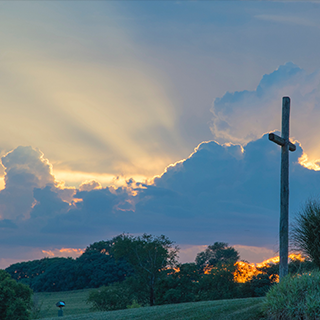One Word That Makes All the Difference
The word is “whatever.” Interestingly, that word was labeled one of the top five annoying words in 2016. The meaning of the word depends a lot on the attitude behind the person using it. The Bible uses the word whatever about 173 times, depending on your translation and, when the word is used biblically, it makes all the difference.
God used the word whatever in the very beginning to show us the difference between human beings and the rest of creation. People were created in the image of God and he honored us with the power of choice. He had just finished creating all the living things on earth and he brought them to Adam. Scripture says, “Whatever the man called every living creature, that was its name” (Genesis 2:19).
Imagine if God had presented those animals for Adam to name, but Adam felt he had something better to do. Adam could have glanced at all those animals and flippantly tossed his hand saying “whatever” and a trip to the zoo would be a much different experience.
Almost every time the word “whatever” is used, it’s because we have a choice to make. God created everything, but only human beings were created in his image, with the ability to choose. Whatever happens today, we can choose to look and act like God’s unique and powerful children or something less. The whatever verses in Scripture will help us choose what is best.
God instructed Moses to consecrate the altar saying, “Whatever touches the altar shall become holy” (Exodus 29:37). Those words give added meaning to the moment when the veil of the temple was torn, from top to bottom. Only God could have done that and only the death of Christ could make that holy altar available to everyone. Whatever touches the altar of God is made holy, and Jesus gave everyone access to the altar. What do you need to bring to his altar today?
Later the Apostle Paul taught one of the most important things we can bring to God’s altar is our thoughts. If our thoughts are made holy, our actions will follow. Philippians 4:8 is possibly the best use of the word whatever in the Bible. The verse says, “Finally, brothers, whatever is true, whatever is honorable, whatever is just, whatever is pure, whatever is lovely, whatever is commendable, if there is any excellence, if there is anything worthy of praise, think about these things.”
When we take our thoughts to the altar of God, He will make them holy. What are holy thoughts?
- God will make our thoughts true and separate them from the lies we might have believed.
- Our thoughts will honor God and his purpose
- Our thoughts will be just and we can see things with God’s perfect judgment
- God can remove whatever is making our thoughts dark and purify them with his holiness
- God can change our ugly thoughts to ideas and opinions that are lovely
- Our thoughts can often condemn us and others. God can make them commendable instead.
- God can make every thought excellent and worthy of praise.
So, whatever plans you have made for the day, remember that God created you with the ability to choose his holiness and Jesus provided everything you need to attain it. The altar is right in front of you, and the curtain is wide open. Whatever will you choose to do?


